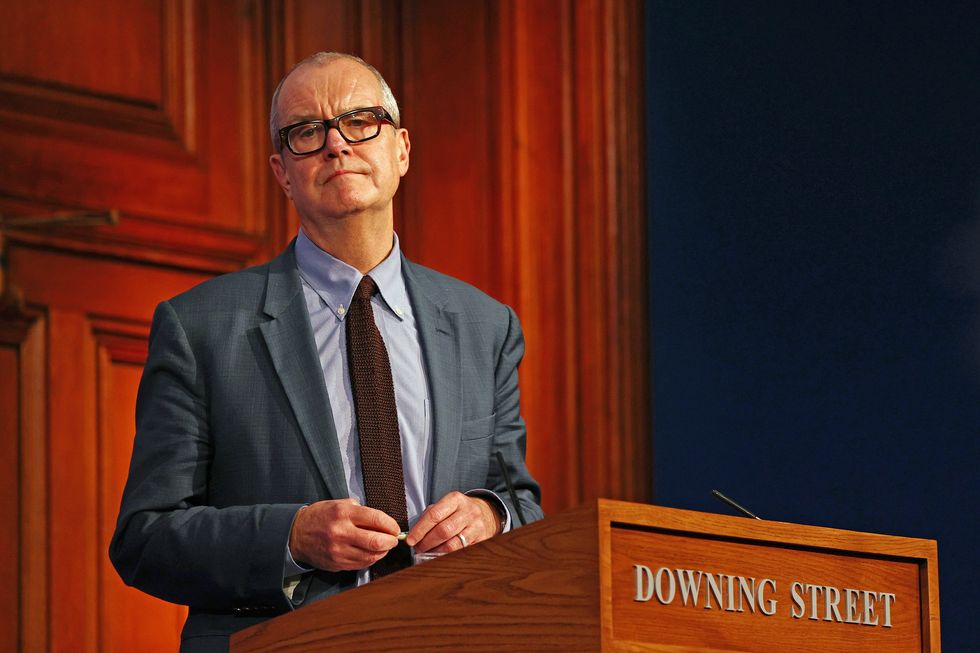Covid boosters to become an 'annual vaccine' like the flu jab says UK chief scientific adviser

Chief Scientific Adviser Patrick Vallance
Adrian Dennis

The UKs chief scientific adviser told MPs on the Science and Technology Committee that it was not a “credible” strategy to give people booster jabs every four months and that he expected for the UK to fall into a pattern of giving annual vaccines “like we do for flu”.
Sir Patrick Vallance suggested that in the future the vaccines currently heavily relied on by the nation, mRNA vaccines such as the Pfizer or Moderna Covid jabs, or the viral vector jab created by scientists at the University of Oxford, “might not” be the right ones for an yearly vaccine.
95-year-old Devraj Jhalam receiving his second booster shot of the Covid-19 vaccine from Dr Nithya Nanda at the Salt Hill Activity Centre vaccination clinic in Slough, Berkshire.
Jonathan Brady
Sir Patrick said that the virus “is not going away” and that there was a “lumpy and bumpy” road before it becomes endemic in the population with the threat of new variants which could be more severe than Omicron.
The current wave of Omicron Covid-19 cases may have peaked, Sir Patrick said but he warned of further rises in hospital admissions and deaths.
Sir Patrick Vallance who is to become the next chairman of the Natural History Museum.
Isabel Infantes
He said that there are “consequences” for the very high rates of infection in the community.
Meanwhile Sir Patrick warned that a reduction in testing will lead to a “decrease in precautionary behaviours” which could drive up transmission of the virus.
Free universal testing is due to end on Friday in England.
Asked if he was concerned by the recent case rates, he told MPs: “We’ve got very high levels of infection at the moment, as indeed many other countries.
“It is very important that actually, at the moment the realised severity, because of vaccines and other things, is being kept under control.
“I think the numbers of infections are beginning to turn so we may be quite close to, or at, the peak and it may start coming down shortly.
“But I expect to see further hospitalisations because of the lag time and further deaths with it, so that is the consequence of the high levels of infection rates.”
He added: “It’s not surprising that we were where we are now in terms of rates because behaviour is returning to normal.”
Asked about the reduction in testing, Sir Patrick said: “Testing in effect does three things: it is very important for surveillance; it enables precautionary behaviour and it’s useful to protect those who are most vulnerable.
He added: “I think there’s no doubt that if you massively reduce testing across the population, precautionary behaviours are likely to decrease at the same time and that will then lead to increased transmission.”
Philomena Spruce receiving her fourth booster shot of the Covid-19 vaccine at Overdene House care home in Winsford, Cheshire.
Peter Byrne
Sir Patrick continued: “This virus is not going away, it’s not going to go away, it’s going to be a circulating human virus for as long as we can see forward.
“And it hasn’t stopped evolving, it is in quite an unstable period.
“So the virus is changing very rapidly and it’s got quite a lot of space to evolve into.
“It’s not a foregone conclusion, that evolution to increase growth and transmission (is) necessarily is associated with reduced severity, so it’s a mistake to assume all evolution will drive to reduce severity.
“Endemicity, when it reaches a more stable background level, isn’t there yet, but we’re on the road to it, but it’s going to be very lumpy and bumpy as we go through it with further viral evolution.”
He added: “As we go through a living with Covid approach, three things become important: We must be able to detect it.
Keith Frank receiving his fourth booster shot of the Covid-19 vaccine at Overdene House care home in Winsford, Cheshire.
Peter Byrne
“Secondly, given the uncertainty, being able operationally to ramp things up again if you need to is crucially important, so don’t allow things to disappear so that you can’t actually start them up… there’s also a lesson from the very beginning of the pandemic where the underfunding of Public Health England for many years it caused a diminution in capacity.
“The third is to make sure that the vulnerable are protected during that period.”
On the future of the vaccine programme, he added: “If I think it will probably look like we’ll be annual vaccines for a certain part of the population as we have for flu.”
He said that we need a better understanding on how to predict which vaccine will be required and also the type of vaccine, adding: “MessengerRNA vaccines have been unbelievably important during this as indeed have viral vector vaccines, because they’ve been quick to get off the ground.
“They’ve been relatively easy to sort of dial up the design of them.
“They may be the right ones to give annual vaccines they might not.
“It may be that other technologies, protein adjuvanted vaccines, even live attenuated vaccines, there may be other things to look at because what we now need to think about is what gives you a durable response because what isn’t credible, is to start having vaccines every four months for everybody that just is not a way that it works.
“So we have to move to the sensible annual cycle in my view.”
The comments come amid the push for spring booster jabs for those most at risk.